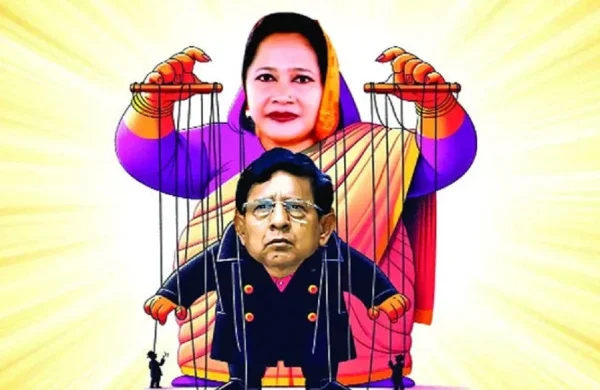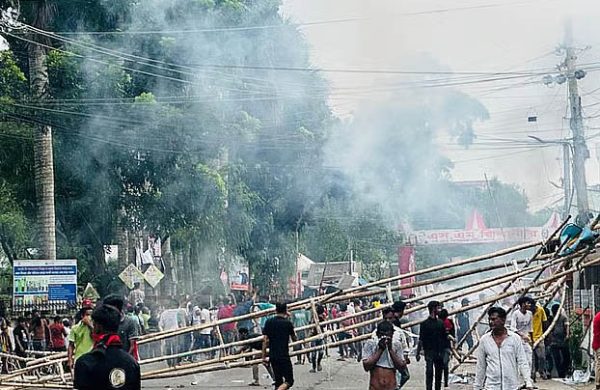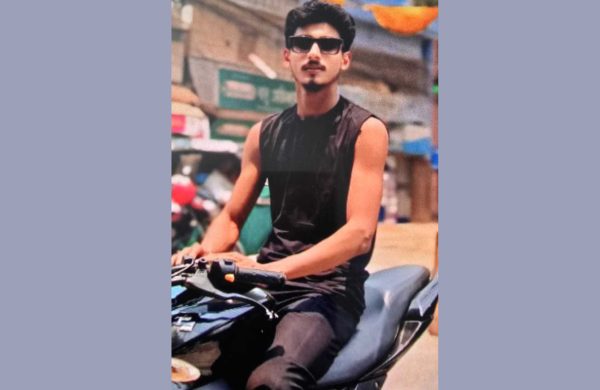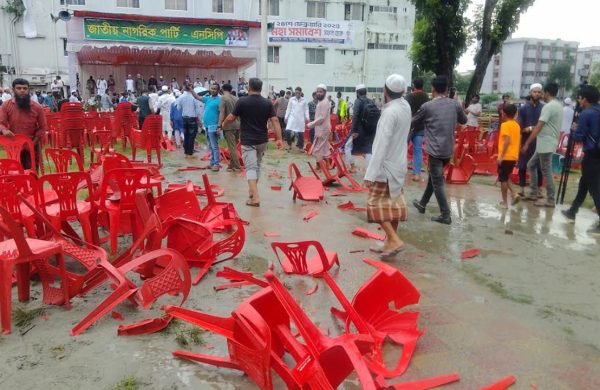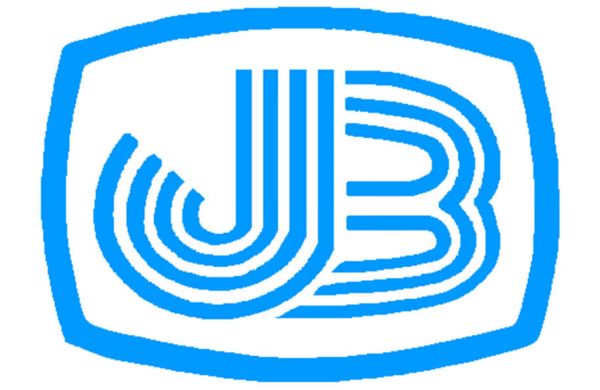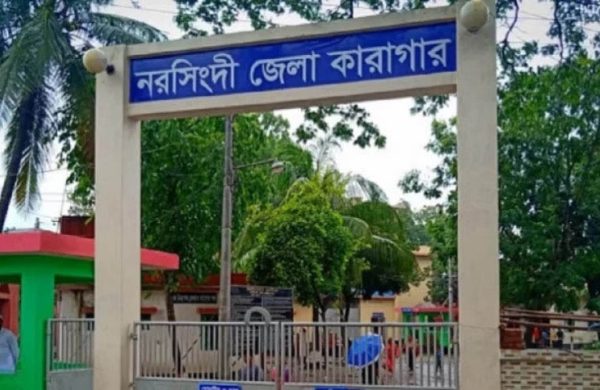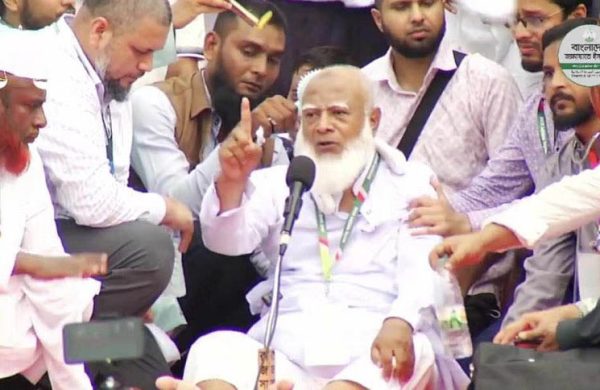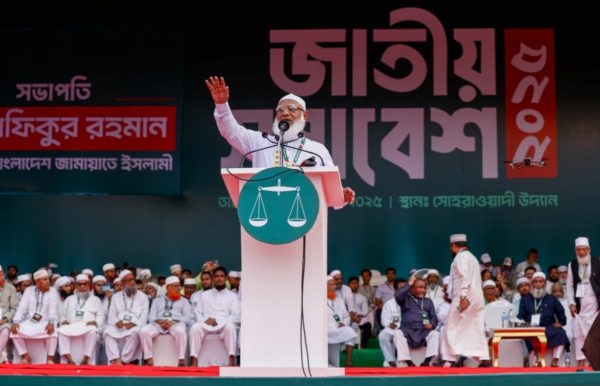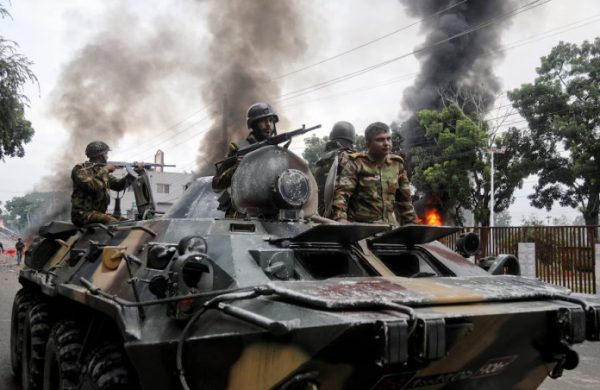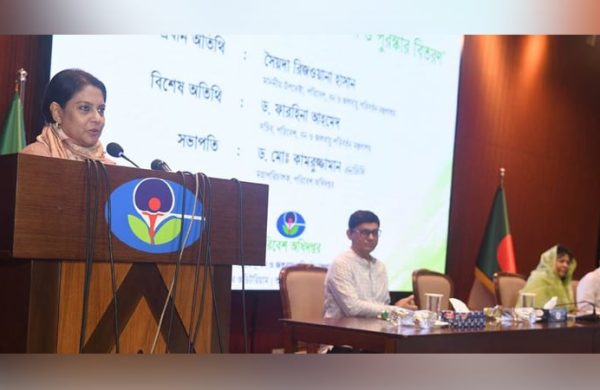When APS’s pet cat becomes minister
- Update Time : Saturday, July 19, 2025
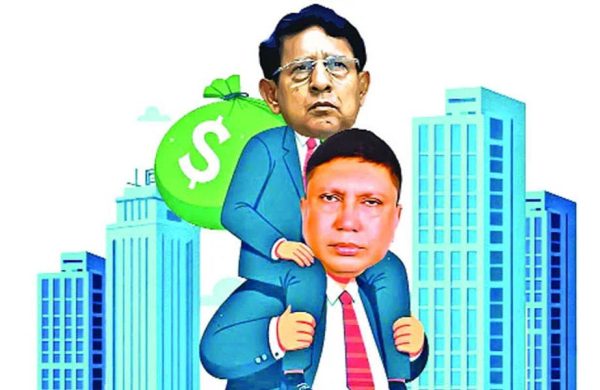
Gazi of Rupganj: The ‘Qazi’ of all crimes
TDS Desk:
Golam Dastagir Gazi served as the Minister of Textiles and Jute from 2018 to 2024. While he was known in Rupganj as a notorious terrorist and land grabber, in the ministry he was like a “pet cat” to his Assistant Private Secretary (APS), Emdadul Haque.
Whenever Gazi visited the ministry, Emdad would sit next to him constantly. Emdad brought him to the ministry, seated him, and vetted every file before it was signed. Without Emdad’s clearance, Gazi would not sign any document. In important and policy-making meetings, Emdad would sit beside the minister.
The minister would often doze off or fall asleep. It was Emdad who played the actual role of the minister in these meetings. He would conclude by saying, “Do as APS Saheb instructed.” This caused extreme discomfort and resentment among the bureaucrats.
Abdul Mannan, an officer of the 1986 batch, was transferred from the Ministry of Health to the Ministry of Textiles and Jute. Known for his upright stance against corruption, he had been removed from the Health Ministry by its corrupt minister Zahid Maleque. Another corrupt official, Lokman Hossain, was then brought into the Health Ministry.
Mannan was sent to the Ministry of Textiles and Jute. Upon joining, Mannan went for a courtesy meeting with Minister Gazi. After shaking hands with Gazi, he noticed Emdad sitting right next to him, which embarrassed him. A secretary is supposed to meet the minister in private, so why was the APS there? Mannan told the minister, “I’d like a private word.” The minister seemed to brush it off. Eventually, Mannan left without further discussion. Such was Gazi’s nature. Everyone in the ministry knew that from 2018 to 2024, Emdad was the de facto minister. Known across Rupganj as “Gazi’s cashier uncle,” Emdad ran everything. Nothing happened in the ministry without his approval. All recruitment, transfers, appointments of Director Generals and Project Directors were finalized by Emdad. He had Gazi completely under his control. Gazi was, in fact, afraid of Emdad.
APS positions are typically meant for managing a minister’s daily affairs—food, meetings, travel plans, etc. The APS is expected to understand a minister’s wishes. But in Gazi’s case, the roles were reversed. Gazi would wait for Emdad’s signals to act. If Emdad said not to sign a file, Gazi wouldn’t. No decision was made without Emdad’s approval from 2018 to 2024. The question is: what gave Emdad such immense power? Why did a feared terrorist and land-grabber like Gazi surrender helplessly to his APS?
The investigation revealed two primary reasons.
First, the APS knew many of Gazi’s secrets—especially his illicit affairs. Gazi had immoral relationships with women like Neela, and others, mediated by Emdad. Multiple sources confirmed Emdad secretly recorded videos of these liaisons and used them to blackmail Gazi. As a result, Gazi danced to Emdad’s tune and ignored all his wrongdoings, which allowed Emdad to become ever more dangerous.
Second, Emdad controlled the gangsters in Gazi’s electoral constituency. It was through their terror that Gazi repeatedly became MP without contest. These criminals were used for land grabbing, violence, and drug trafficking. To keep this machinery running, Gazi kept Emdad satisfied. On one side was Gazi’s looting, and on the other, Emdad’s unchecked pillaging—together creating a monstrous scenario both in the ministry and in Rupganj.
Though the Ministry of Textiles and Jute was relatively small and insignificant, Gazi sold off numerous state-run jute and textile mills at rock-bottom prices. The most attractive assets of these mills were their lands. For instance, a mill with land worth 100 crore BDT was sold for just 10 crore BDT through Gazi-Emdad manipulation. Buyers would easily pay 20–30 crore BDT in bribes to the APS. Gazi misappropriated huge sums from various projects—planned entirely by Emdad. From the Bangladesh Jute Mills Corporation to other bodies, all appointments were under Emdad’s command. To become a departmental head, one had to first win Emdad’s trust.
Take, for example, the “Plastic Alternatives” project. 570 crore BDT was allocated just for preliminary research. Gazi withdrew the entire amount without executing any work. The lead researcher was coerced into signing off, and Gazi kept all the funds. Numerous such “paper-only” projects were approved by ECNEC. They existed only on file, not in reality. From 2018 to 2024, the ministry saw only looting—no actual work. Through mill sales and project fund misappropriation, Gazi is accused of embezzling around 5,000 crore BDT. Emdad oversaw all the money. Gazi was merely a puppet.
Outside the ministry, Emdad was a living nightmare in Gazi’s constituency. He formed a private armed gang of known criminals. They established a reign of terror—occupying land, committing murders, enforced disappearances, rapes. Even when some brave victims sought justice, they were met with threats or further violence. Backed by Gazi, Emdad built his own gang in Rupganj.
His gang included hardened criminals like:
Shamsher Ali Khan (alias Daku Shamsher), son of Hasmat Daya from Chanpara rehabilitation area. He was involved in multiple criminal activities and had 13 cases against him, including murder, extortion, and drugs. Elected as UP member in 2018, he openly controlled criminal activities. He forced locals into drug and arms trafficking.
Tawlad Member, son of Afsar Uddin from Mashimpur. Known for crimes under the “Emdad’s man” identity. He had cases filed in Rupganj (Case Nos. 11(10)22 and 22(8)23), and also in Sonargaon police station.
Sheikh Farid Masum, son of Jahangir Alam. Known drug and arms dealer. Accused in four cases (Case Nos. 99(5)18, 27(6)16, 41(2)03, and 35(10)06). He also served as the general secretary of the upazila Chhatra League. No progress in his case investigations.
Md. Ali Hossain (alias Ali Banda), son of Suruj Mia Munshi of East Kaladi village. Operated under Emdad’s protection. Accused of land grabbing and criminal activities (Case No. 38(12)22).
Tofail Ahmed Almas, a terror in Murapara Union. Accused in several cases of murder, extortion, and terrorism. He was sentenced to death in the murder of industrialist Russell Bhuiyan but was mysteriously released. Using political influence, he became chairman in 2016 with Awami League’s nomination. After August 5, he went into hiding.
Md. Mamun Mia, drug, arms, and yaba trafficker from Mashimpur. Several cases against him in Rupganj.
Mohammad Roni Mia, another criminal from Mashimpur. Accused in cases involving drug trafficking, illegal weapons, extortion, and threats. He also went into hiding after August 5.
Until August 5, 2024, Emdad’s gang ruled all of Rupganj with terror. Following the fall of the Awami League, most of them fled. Locals still demand exemplary punishment. The horrifying memories of Emdad’s reign under Gazi’s protection continue to haunt the people of Rupganj. Emdad was not only feared in Rupganj—he was also a terror in his hometown, Sirajganj. He was reportedly preparing to run for parliament from Sirajganj-5 (Belkuchi–Chowhali).



